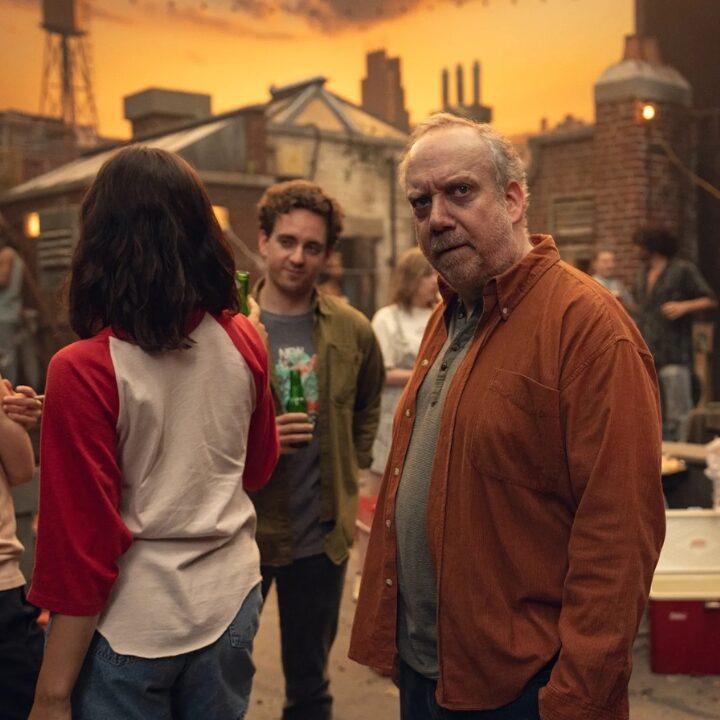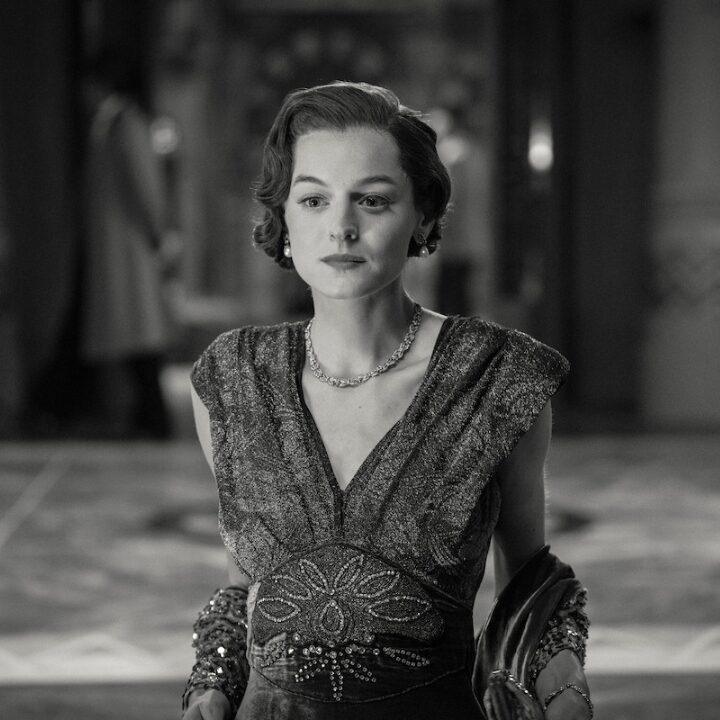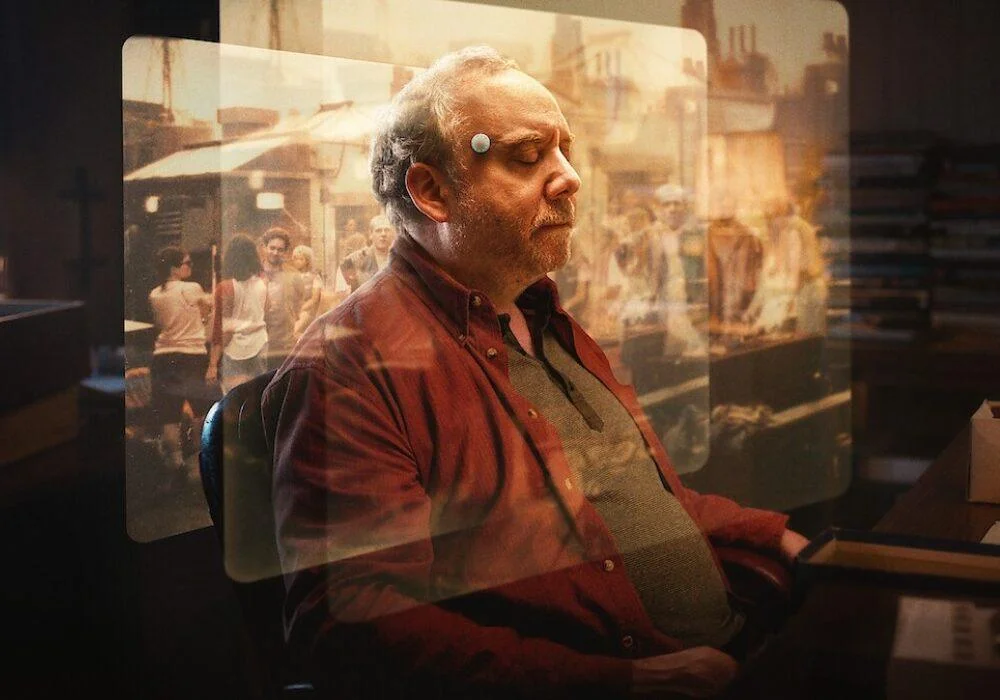Warning! Spoilers ahead for ‘Black Mirror’ Season 7
For over a decade, sci-fi-dystopian anthology series ‘Black Mirror’ has been taking viewers on intense, ‘Twilight Zone’-esque rides. During its tenure with British network Channel 4 and then with streaming giant Netflix, ‘Black Mirror’ has churned out episodes that have disturbed, entertained, and enchanted audiences worldwide. However, somewhere between seasons five and six, rumblings of the declining quality grew louder – many griping that there was a stark difference between the Channel 4 and Netflix eras in terms of standard.
One can assume that creator and writer Charlie Brooker took these criticisms into consideration, as the recently released season of ‘Black Mirror’ has almost everyone raving about the show’s return to form. But with reports of season seven debuting with lower numbers than season six – despite garnering better reviews – viewers need an enticing reason to tune in. We can safely say that just one episode into season seven is enough to send you on a dedicated binge-watch – although you may need breaks in between for questioning the meaning of life. ‘Black Mirror’ is back with more advanced speculative technology than ever, yet also with such powerful instances of humanity.
Read More: The White Lotus Season 3 – An Ending More Bitter Than Sweet

Painful, Poignant, And…Ironic
Right out of the gate, episode one of ‘Black Mirror’ season seven delivers one of the series’ most devastating narratives – made even more brutal by its realistic (and ironic) parallels. When Rashida Jones’ Amanda falls ill with a brain tumor in ‘Common People,’ her desperate husband Mike (played by Chris O’Dowd) accepts an offer from a start-up called Rivermind to restore and operate his wife’s damaged brain – for a monthly fee. Only when Amanda begins to sporadically recite ads do the couple discover that Rivermind’s continuing expansion comes with new subscription tiers required for the ‘ad-free’ service.
It takes barely an elementary level of media literacy to see the ironic parallels between Rivermind and modern subscription-powered services like Netflix. The exhausting and humiliating ways Mike has to resort to in order to literally keep his wife alive – without living as a talking advertisement – are heartbreaking to watch. Watching the chipper Rivermind rep played by Tracee Ellis Ross go over essential features that now require a fee actually on Netflix is cringe-inducing to say the least.

Changing Current Realities Or Reliving Important Pasts
Although some bemoan that the narrative signature of ‘Black Mirror’ has grown predictable, the series’ seventh season exhibits Brooker’s ability to stay creative with the “future technology aids/hinders humanity – with a twist” formula. The show’s knack for intertwining modern issues into its plots is also on full display in ‘Bête Noire,’ when gaslighting is taken to the extreme. When food scientist Maria (Siena Kelly) finds herself working with Verity (Rosy McEwen), a former outcast from high school, Maria starts finding anything from small details to lived moments somehow changing from her reality.
Kelly’s affecting performance of Maria certainly makes you feel the escalating distress of being told that what you know as truth is actually false. The actual explanation behind the events of ‘Bête Noire’ – computer whiz Verity creating a quantum computer that alters reality and using it to get revenge – is ultimately not as compelling as the rest of the episode. It’s actually Netflix and ‘Black Mirror’s’ choice to stream different versions of ‘Bête Noire’ to viewers without notice that makes this episode’s themes stick – not Maria’s final choice to make herself “empress of the universe.”
However, Brooker doesn’t spend all of season seven depicting the ways fictional technology can exploit people. In fact, in the incredibly emotional ‘Eulogy,’ ‘Black Mirror’ displays how future technology also has the power to bring us more in touch with our humanity. With the episode sharing its name with a service that allows people to step into old photographs, ‘Eulogy’ explores how fundamental truths about a relationship can be noticed in hindsight with the power of immersive AI. As a bitter Phillip (Paul Giamatti) reckons with his own shortcomings with the aid of the AI-generated ‘Guide,’ the Eulogy experience eventually brings Phillip closure, regret, and clarity.

Humanity Perseveres – At A Cost
Despite the dark sci-fi themes of ‘Black Mirror,’ another vital aspect of what makes the series so moving is how it dives deep into the depths of humanity – with the perks or downfalls of future tech all leading back to the very human ways these tools are used. In the final moments of ‘Common People,’ a visibly broken-down Mike follows a barely-existing Amanda’s final wishes to to be smothered once her mind is gone; hearing her fading voice shill an advert as he ends her suffering leaves viewers staring at their own ‘black mirrors’ in stunned silence.
Going a step further, season seven also presents the quandary of what level of sentience can advanced, conscious AI entities be prescribed. This idea is taken to its most extreme in ‘Playthings,’ when the reclusive and eccentric Cameron (Peter Capaldi) get arrested and recounts his younger self (Lewis Gribben) discovering a PC game created by Colin Ritman (Will Poulter, back from 2018’s ‘Bandersnatch’). The ‘Thronglets’ game – eerily similar to the concept of Tamagotchi or The Sims (RIP Landgraab family) – essentially has digital creatures developing both in numbers and consciousness as Cameron virtually nurtures them. While you can’t help but feel a little sad when the Thronglets are gleefully murdered by Cameron’s houseguest Lump, Colin’s murder of Lump and eventual radical devotion to the Thronglets are chilling to watch.
The concept of seeing AI creations as living beings gets more complicated than pixels on a PC in ‘Hotel Reverie.’ Movie remakes are taken to the extreme when the company ReDream develops the ability to make a film with AI virtual production tech. When the system malfunctions with modern Hollywood star Brandy Friday (Issa Rae) immersed in the classic romance film ‘Hotel Reverie,’ she and the now self-aware AI projection of late actress Dorothy Chambers (Emma Corrin) fall in love over months while the virtual production remains frozen in time. Despite the fact that ‘Hotel Reverie‘ stands as a pale imitation of the superior sapphic ‘Black Mirror‘ virtual romance episode ‘San Junipero,‘ the love and heartbreak Brandy goes through is strikingly felt.

Is Co-Existence Possible?
Meanwhile, the season’s longest and most anticipated episode is ‘USS Callister: Into Infinity’ – the first-ever direct sequel to the season four episode, ‘USS Callister.’ The lines between the ideas of AI and humanity get extremely blurred throughout this Star Trek-esque episode, as the illegally created digital clones from season four fight for their lives within the virtual game Infinity. Although essentially digital avatars of the real people whose DNA they were crafted from, these avatars all have distinct and different personalities from their real life counterparts – despite only existing on a digital server.
After discovering the existence of the clones, real-life programmer Nanette (Cristin Milioti) and Infinity CEO James (Jimmi Simpson) enter the game to meet their digital counterparts – having vastly different reactions. While Nanette is fascinated by her more confident and assertive avatar and understands that death in-game for them is actual death, James sees them as mere digital liabilities.
The story eventually comes down to real being and virtual beings learning to co-exist together – for better or worse. When avatar Nanette attempts to copy the clone crew members into a private server while merging her consciousness with her now‑comatose real body, all the crew members are mistakenly merged with ‘real’ Nanette – while the Infinity game universe is wiped. With the Nanettes the only ones actually in control of her body, it would’ve been easy for the USS Callister crew to remain trapped and powerless with only a window into the real world. However, Brooker shows that Nanette hasn’t forgotten that these clones are conscious – giving them the ability the communicate and have a say in how they all experience the world.
Born in Korea and raised in Hong Kong, Min Ji has combined her degree in anthropology and creative writing with her passion for going on unsolicited tangents as an editor at Friday Club. In between watching an endless amount of movies, she enjoys trying new cocktails and pastas while occasionally snapping a few pictures.




